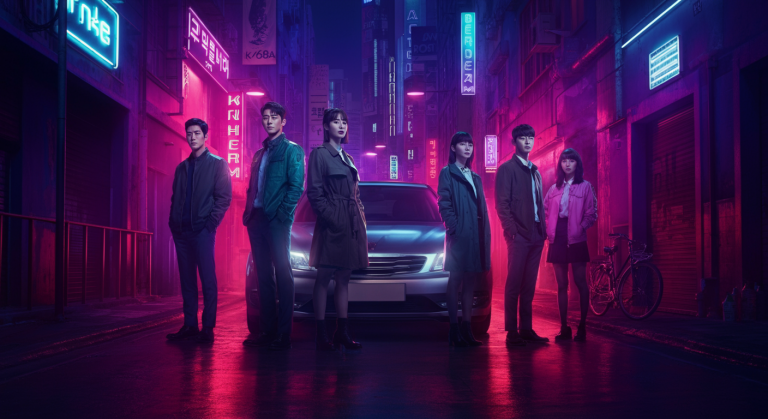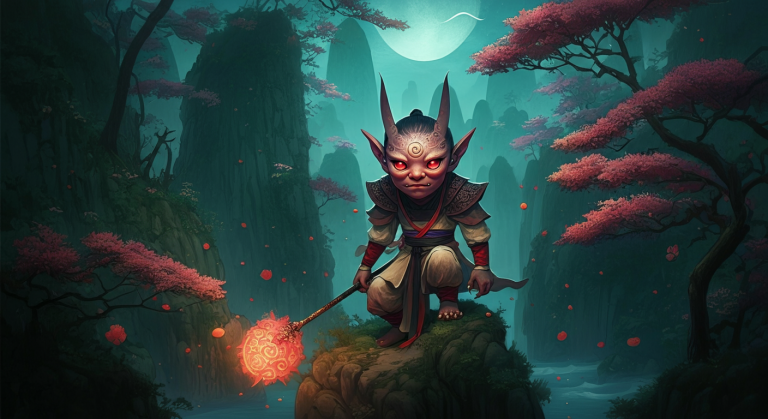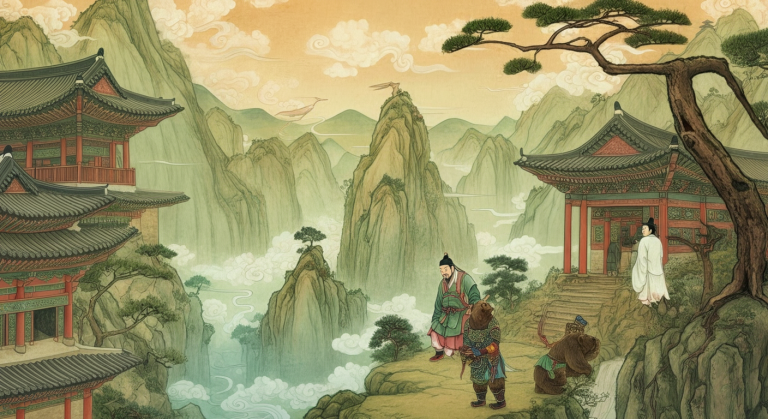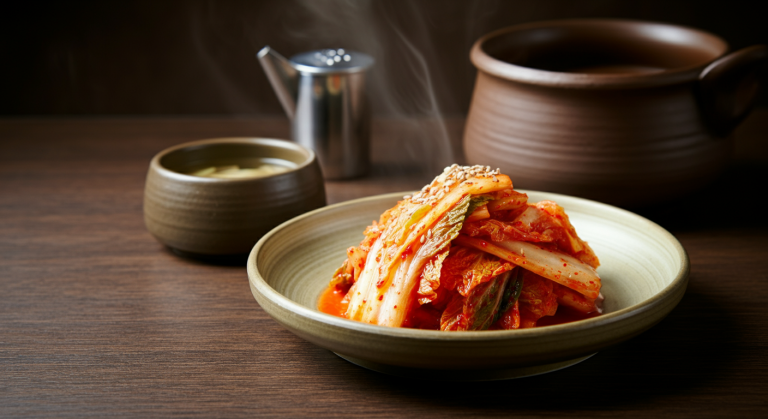Hong Gildong Story: Modern Inequality?
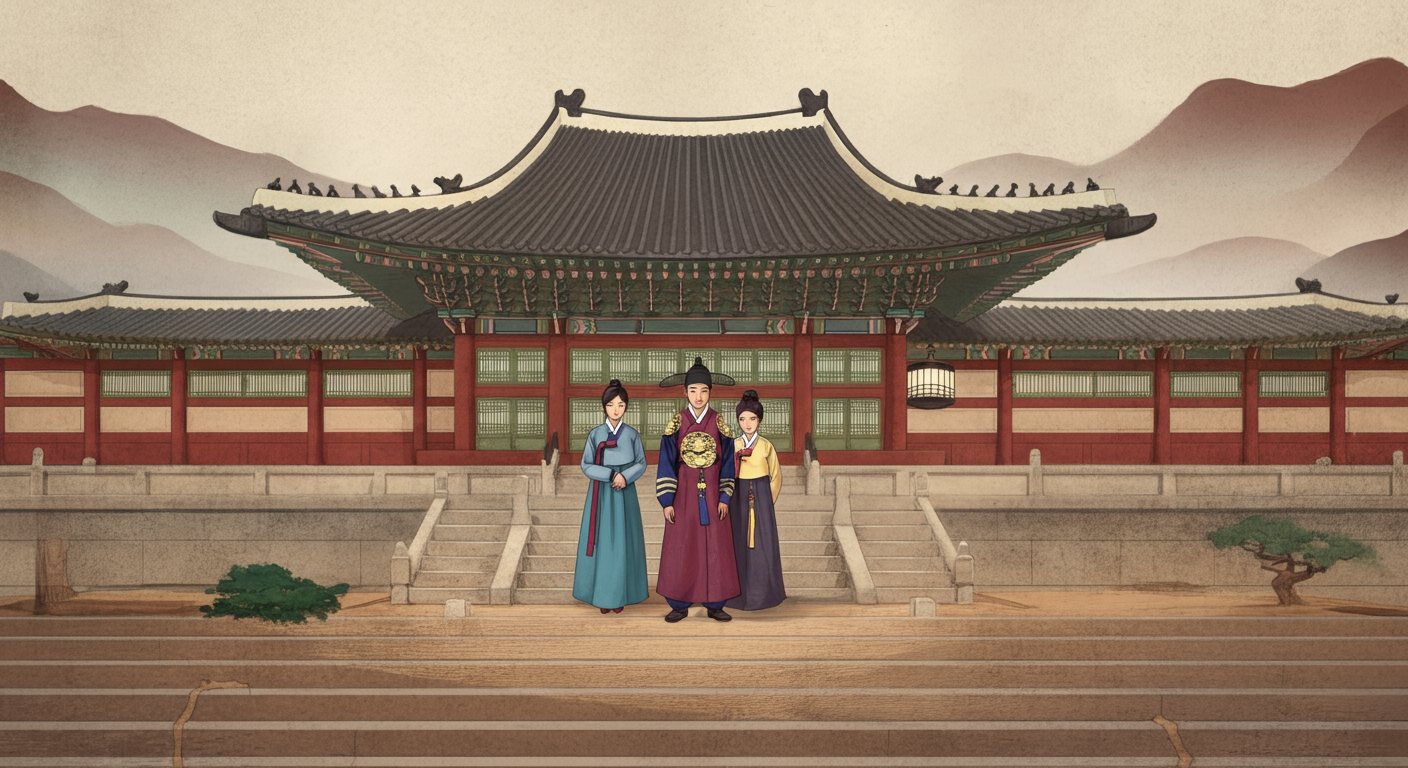
**Hong Gildong Story (홍길동전): From Ancient Rebel to Modern-Day Hero – Fighting Inequality in Korea**
Have you ever immersed yourself in a K-drama and found yourself rooting for the underdog, the one fighting against a seemingly insurmountable system? Or maybe a K-pop song’s lyrics resonate with a longing for fairness in an unequal world? If so, then you’ve already felt the echoes of the **Hong Gildong Story (홍길동전)**, Korea’s legendary tale of a righteous bandit. This isn’t just a children’s fable; it’s a foundational myth, a thrilling narrative that delves into themes of injustice, social mobility, and the eternal human yearning for a just society. Growing up in Korea, the **Hong Gildong Story (홍길동전)** was more than just a historical account; it was a constant conversation starter about fairness, power, and what it truly means to be “just” when the rules themselves feel unfair.
But here’s the fascinating backstory: what if this ancient narrative, penned centuries ago, holds a mirror to modern South Korea? What if the struggles of our legendary hero resonate deeply with the pressing issue of widening wealth gaps (부익부빈익빈) that challenge contemporary Korean society? Trust me on this, once you understand the layers of the **Hong Gildong Story (홍길동전)**, you’ll see why it’s more relevant than ever. Just as K-dramas like ‘Vincenzo’ or ‘Taxi Driver’ feature protagonists who take justice into their own hands when the official channels fail, Hong Gildong pioneered this very concept. Today, as South Korea grapples with the intensifying disparity between the rich and the poor, many wonder: what would a modern-day Hong Gildong do? Who would they be, and how would they fight for a more equitable world? This deep dive into the **Hong Gildong Story (홍길동전)** will not only introduce you to a classic Korean hero but also offer a unique lens through which to understand the complex socio-economic landscape of modern Korea. Get ready to discover a tale that proves some stories are truly timeless, transcending generations and continuing to inspire.
Hong Gildong Story (홍길동전): The Original Rebel with a Cause
Let’s journey back to the Joseon Dynasty, the setting for the original **Hong Gildong Story (홍길동전)**, widely considered one of Korea’s first novels. Written by Heo Gyun in the early 17th century, this tale introduces us to a truly unforgettable hero, Hong Gildong. Unlike many celebrated figures born into privilege, Gildong’s life was marked by inherent injustice from the very beginning. He was the son of a powerful minister, but he was an 서자 (seo-ja), an illegitimate son born to a concubine. In the rigid social hierarchy (신분제도, shinbun jedo) of Joseon, this meant he was denied fundamental rights and recognition, despite his extraordinary talents and intelligence. He was brilliant, skilled in martial arts, and even possessed magical abilities (도술, dosul), yet he couldn’t even call his own father “father” (아버지) or his elder brother “brother” (형) without incurring punishment. Can you imagine the frustration, the deep-seated sorrow and resentment (한, han) that would build in a person’s heart under such circumstances?
This fundamental unfairness, this denial of his rightful place simply because of his birth, became the driving force behind Hong Gildong’s transformation. After his stepmother and half-brother conspire to kill him (a classic K-drama trope, wouldn’t you agree?), he flees his home and eventually forms a band of righteous bandits known as the 활빈당 (hwalbindang), which literally translates to “party that saves the poor.” This group’s mission was clear: they would steal from corrupt officials and wealthy oppressors, then redistribute their ill-gotten gains to the impoverished and suffering. Think of him as Korea’s answer to Robin Hood, but with a unique Korean flavor and a touch of supernatural flair. He challenged the very foundations of the Joseon society, not just economically, but also socially. His actions were a powerful critique of the existing 신분제도 (shinbun jedo), demonstrating that true worth was not determined by birthright but by character and deeds. The **Hong Gildong Story (홍길동전)** wasn’t just entertaining; it was a radical social commentary for its time, giving voice to the voiceless and hope to the downtrodden. It championed the idea that justice (정의, jeong-ui) should prevail, even if it meant breaking established norms.
The Birth of a Hero: Challenges and Jeong (정)
Hong Gildong’s early life, marked by the inability to acknowledge his own family, generated an immense amount of personal 한 (han). This isn’t just sadness; it’s a complex, pent-up emotion of grief, anger, and longing for resolution. This 한 is what pushed him away from his family, yet it also fueled his desire to create a world where others wouldn’t suffer similar indignities. His journey from a frustrated individual to the leader of the 활빈당 (hwalbindang) is a powerful narrative of self-discovery and agency. He finds a new kind of family among his fellow outcasts, where respect is earned, not inherited.
Within his bandit group, a different kind of 정 (jeong) flourished. Jeong is that deep, complex, and often unspoken bond of affection, loyalty, and empathy that ties people together in Korean culture. It’s the feeling you share with close friends, family, or even a community. For Hong Gildong and his 활빈당, it was a mutual understanding, a shared purpose forged in their fight against injustice. This communal 정 became their strength, allowing them to trust each other implicitly and work together for the greater good. It’s a testament to the idea that even when denied familial 정, one can find it by living righteously and fighting for a cause bigger than oneself. The **Hong Gildong Story (홍길동전)** reminds us that while societal structures can be rigid, the human spirit’s capacity for justice and connection remains boundless.
From Joseon Dynasty to Digital Age: The Echoes of Hong Gildong Story (홍길동전)
Now, let’s fast-forward to the 21st century. While the formal 신분제도 (shinbun jedo) of Joseon is long gone, the core themes of the **Hong Gildong Story (홍길동전)** – injustice, limited social mobility, and the fight against systemic unfairness – resonate with surprising clarity in modern South Korea. Korea’s incredible economic growth, often dubbed the 한강의 기적 (Hangangui Gijeok), or the “Miracle on the Han River,” transformed a war-torn nation into an economic powerhouse. However, this rapid growth came with a significant caveat: a widening gap between the rich and the poor, leading to what Koreans call 부익부빈익빈 (buikbu binikbin) – the rich get richer, and the poor get poorer.
This isn’t just an abstract economic term; it’s a lived reality for many Koreans, and it’s powerfully reflected in the K-dramas and films you love. Take the critically acclaimed movie ‘Parasite,’ for instance, or the global phenomenon ‘Squid Game.’ Both expertly dissect the stark class divide and the desperate measures people take to survive or ascend. Even a romantic comedy like ‘Crash Course in Romance’ subtly explores how private education and social connections perpetuate a cycle of advantage. These narratives are not just entertainment; they are a direct commentary on the modern “신분제도” (shinbun jedo) that, while unofficial, feels incredibly rigid to those on the lower end.
The frustration Hong Gildong felt about his birthright and lack of opportunity now manifests in different, yet equally potent, ways. In contemporary Korea, this often revolves around the concept of 금수저 (geumsujeo – gold spoon) versus 흙수저 (heuksujeo – dirt spoon). The term 금수저 refers to someone born into wealthy, well-connected families who seemingly have an easier path to success due to inherited capital and networks. Conversely, 흙수저 describes those born into less privileged backgrounds, who despite working incredibly hard, face an uphill battle against systemic disadvantages. This stark reality is a modern echo of Hong Gildong’s initial plight, where merit alone wasn’t enough to overcome his birth status. As someone deeply familiar with Korean culture, I can tell you that these terms aren’t just slang; they encapsulate a pervasive feeling of unfairness that many young Koreans grapple with. The **Hong Gildong Story (홍길동전)**, in its essence, was a call for a meritocratic society, and that call still reverberates today.
The ‘Gold Spoon’ vs. ‘Dirt Spoon’ Reality (금수저 vs. 흙수저)
The 금수저 (geumsujeo) and 흙수저 (heuksujeo) discourse is a significant and often painful part of modern Korean identity. It affects everything from education—where access to elite hagwons (private academies) can cost a fortune—to career prospects and even marriage. Many young Koreans feel that no matter how much effort they put in, the head start given to the “gold spoons” is simply too great to overcome. This sentiment fuels a sense of disillusionment, sometimes expressed through the satirical and cynical term 헬조선 (Hell Joseon), implying that Korea is a “hellish” place due to its intense competition and perceived lack of social mobility.
This feeling of being trapped by one’s birth, despite talent and hard work, is remarkably similar to Hong Gildong’s plight. He possessed extraordinary abilities but was denied his rightful place. Today, individuals with immense potential find their paths constrained by factors beyond their control, like family wealth or connections. This isn’t to say Korea lacks opportunity, but rather that the playing field feels increasingly uneven. The **Hong Gildong Story (홍길동전)** thus provides a historical lens through which to view these contemporary struggles, highlighting the enduring human desire for a society where one’s effort and talent are truly valued, irrespective of one’s starting line.
Wealth Inequality and the Modern Korean Landscape: Where is Today’s Hong Gildong Story (홍길동전)?
The economic disparity in South Korea manifests in tangible, everyday ways that deeply affect people’s lives. Consider the soaring housing prices, especially in metropolitan areas like Seoul. Owning a home, once a quintessential dream, has become an almost unattainable fantasy for many young people, particularly in affluent districts like Gangnam. This contributes significantly to the 부익부빈익빈 (buikbu binikbin) phenomenon. Furthermore, the fierce competition faced by 자영업자 (jayoungupja), or small business owners, against powerful 재벌 (chaebol) – the large family-owned conglomerates – paints a picture of an uneven battlefield. Many small businesses struggle to survive, while large corporations seem to grow unchecked, sometimes leading to accusations of unfair practices. The pressure to secure a stable job, particularly in a desirable company, is immense, and the consequences of “failing” in this competitive environment can feel devastating.
So, where does the spirit of the **Hong Gildong Story (홍길동전)** live in this landscape? While there might not be an actual band of masked bandits riding through the streets, the desire for justice and fairness (정의, jeong-ui) persists. We see it in public discourse, in protests against corporate misconduct, and in the collective voice of citizens demanding better social welfare programs. K-pop, while not always overtly political, sometimes touches on themes of societal pressure or encourages self-love and resilience in the face of challenges. Fans, too, often rally together for charitable causes or to support social campaigns, demonstrating a modern form of collective action, much like Hong Gildong’s 활빈당 (hwalbindang) united for a shared purpose.
A crucial aspect of navigating this complex social landscape is 눈치 (nunchi). This uniquely Korean concept refers to the subtle art of reading social cues, understanding unspoken expectations, and having an intuitive grasp of how others are feeling. In a society grappling with wealth inequality, nunchi is essential for understanding one’s place, the unspoken rules, and even the subtle resentments or aspirations of those around you. It’s an awareness that permeates daily interactions, from the workplace to family gatherings, making people acutely aware of economic disparities. When discussing these issues, you’ll often hear Koreans sigh and say, “그러게요 (geureogeyo),” meaning “I know, right?” or “You can say that again,” reflecting a shared understanding of these pervasive challenges. Sometimes, the sheer scale of the wealth disparity can elicit a “대박 (daebak)!” – an exclamation of shock or awe, not always positive. The enduring relevance of the **Hong Gildong Story (홍길동전)** lies in its profound ability to articulate the universal desire for a system that truly serves everyone, not just a select few.
The Role of ‘Justice’ in a Hyper-Capitalist Society (정의)
The concept of 정의 (jeong-ui), or justice, takes on a nuanced meaning in a modern, hyper-capitalist society like South Korea. For Hong Gildong, justice was clear-cut: punish the corrupt officials who oppressed the poor and redistribute their stolen wealth. In today’s complex economic system, defining and achieving justice is far more intricate. Is it about higher taxes for the rich? Stronger regulations for conglomerates? More robust social safety nets? Or perhaps ensuring truly equal educational opportunities for all?
Current debates in Korea often revolve around these questions, touching upon taxation policies, the role of corporate social responsibility, and the extent of government intervention needed to mitigate the 부익부빈익빈 (buikbu binikbin) problem. While there’s no single villain like the corrupt officials in Hong Gildong’s time, the collective frustration towards systemic unfairness is palpable. The **Hong Gildong Story (홍길동전)**, with its straightforward heroic actions, serves as a powerful reminder of what people *wish* justice could be—swift, decisive, and beneficial to the disadvantaged. It inspires a continued search for effective ways to uphold 정의 in a world where economic power often dictates social standing.
Imagining a Modern Hong Gildong Story (홍길동전): What Would They Do?
So, let’s play a thought experiment: if Hong Gildong (홍길동) were to emerge in present-day South Korea, how would he fight injustice and tackle the 부익부빈익빈 (buikbu binikbin) problem? His methods would undoubtedly evolve with the times. Instead of raiding physical strongholds, perhaps he would be a master hacker, exposing corporate corruption, financial fraud, or illicit lobbying from the deepest corners of the internet. His 도술 (dosul), or magical powers, might translate into unparalleled digital prowess, allowing him to bypass the most sophisticated firewalls or anonymously disseminate sensitive information to the public. He might use social media not just to spread awareness but to organize mass collective action, forming an online version of the 활빈당 (hwalbindang) that could mobilize thousands with a single viral post.
This modern Hong Gildong might not just be “stealing from the rich to give to the poor” in the traditional sense. His actions could be more strategically aimed at systemic change: exposing unfair labor practices, pushing for more equitable housing policies, or advocating for stricter regulations against monopolistic practices by large 재벌 (chaebol). He might champion whistleblowers, support investigative journalists, or even establish powerful NGOs dedicated to fighting economic disparity and advocating for the 흙수저 (heuksujeo) generation. Imagine a K-drama where our hero, instead of wielding a sword, battles legal loopholes and digital disinformation, leveraging his intellect and resources to dismantle the very structures that perpetuate inequality.
The power of collective action, a cornerstone of Hong Gildong’s original efforts, would be amplified in the digital age. We’ve seen glimmers of this in K-pop fandoms, which, beyond supporting their idols, often organize massive charitable drives, social awareness campaigns, and even political statements. This demonstrates a different kind of “활빈” (hwalbin – literally “lively people” but implying saving or helping) – a collective force for good, using modern tools for impact. The **Hong Gildong Story (홍길동전)** compels us to think beyond individual heroism and consider the broader societal changes required. It asks us: *who* are the modern heroes fighting for justice, and *what* tools do they wield? You’ll love this thought experiment because it makes us ponder our own roles in creating a fairer world. It reminds us that the spirit of challenging injustice, whether through ancient tales or modern activism, continues to burn brightly.
**Conclusion: The Enduring Legacy of the Hong Gildong Story (홍길동전)**
The **Hong Gildong Story (홍길동전)** is far more than an ancient fable; it’s a living narrative that continues to resonate with the heart and soul of Korean society. From its critique of Joseon’s rigid 신분제도 (shinbun jedo) to its surprising relevance in addressing modern South Korea’s 부익부빈익빈 (buikbu binikbin) problem, Hong Gildong’s fight for justice (정의, jeong-ui) remains as compelling as ever. His legacy reminds us that while the landscape of injustice may change—from birthright discrimination to economic inequality—the human desire for fairness and opportunity endures across centuries.
Through the lens of the **Hong Gildong Story (홍길동전)**, we gain a deeper understanding of the struggles and aspirations that drive many K-dramas, K-pop lyrics, and even daily conversations in Korea. It encourages us to look beyond the dazzling lights of Seoul and the catchy tunes of our favorite idols, to appreciate the rich cultural tapestry woven with threads of history, social commentary, and a persistent hope for a better future. So, the next time you’re enjoying a plate of 치킨과 맥주 (chikin-gwa-maekju – chicken and beer), remember Hong Gildong and the timeless quest for a society where everyone has a fair chance to thrive. After all, 치킨은 사랑이야 (chikin-eun sarang-iya – chicken is love), and so is a society where everyone has a fair chance to enjoy it. The tale of Hong Gildong is a powerful testament to the idea that a hero’s spirit can inspire generations, urging us all to question the status quo and champion a world that is truly equitable.
